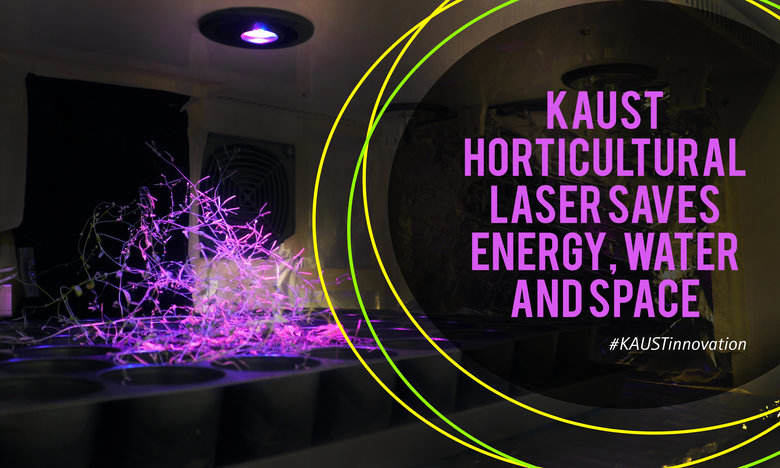Dr. Boon S. Ooi, a professor of engineering at KAUST, has developed a new laser-based horticultural technology that could significantly benefit the agri-foods industry, especially in places with limited sunlight such as Northern Europe or with limited water/soil such as Saudi Arabia.
Problems with Existing Technologies
Many agricultural products will not grow well in countries with limited sunlight or that have dry, desert-like conditions that promote evaporation. In such areas, artificial light in indoor settings becomes an important technology for the agri-foods industry.
Current technologies use either fluorescent lighting or LED lighting but both have significant drawbacks. Many light sources need to be used in one enclosed space, they drain energy (often inefficiently), are difficult/expensive to replace and require cooling systems to maintain optimal temperatures because the numerous lights heat up the whole chamber.
Workers are also frequently required to monitor the lights, make sure they are functioning properly and replace them every 4400 hours or so based on 16 hours per day of usage.
Gamechanging Horticultural Technology
The new laser technology developed at KAUST could be a game changer. A laser-based system directs light selectively into an indoor enclosed space. The laser can last up to 20,000 hours or longer, which is a significant improvement from current technologies.
The technology saves water and energy because it does not heat up the whole chamber and does not require a cooling system. It saves space as the technology is scalable, does not require large LED or fluorescent lights, can be controlled remotely and tailored to individual compartments in vertical horticulture.
Furthermore, it can be shut on and off at will and does not need time to warm up. This gives the plants the proper energy required for photosynthesis. The laser based technology has currently been tested on model plants (arabidopsis thaliana) and is applicable for horticultural crops. Several patents are pending.
“This laser-based horticultural technology could significantly change the agrifoods sector and allows agricultural products to grow happily, healthily and organically,” said Professor Ooi.
KAUST Innovation has a booth at the Global Forum for Innovations in Agriculture from February 16-17 in Abu Dhabi and will be exhibiting this technology.
You can read more about this technology here.

